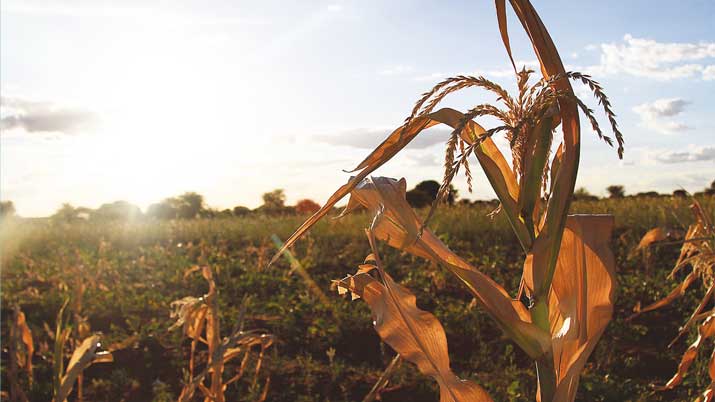- 20 000 tonnes of beans exported annually
- BAMB to start buying beans
- Over P140m made from export revenue
- NDB funds Panda farmers
KEABETSWE NEWEL
Commercial farmers in the Pandamatenga area are exploiting Asia’s ever increasing demand for food – occasioned by its ever expanding population – and exporting Mung Beans, in the process generating much needed export revenue for Botswana.
The Botswana Gazette has established that at least 20 000 tonnes or 20 000 000 kilograms of beans are exported on an annual basis to China, India and Canada.
Paul King, a commercial farmer and Managing Director of Boteti Investments revealed that the Pandamatenga farmers combined produce over 20 000 tonnes of beans annually. The beans are bought by an Indian company called EGT and a Canadian company called AGT which buy the beans in South Africa and transport them abroad.
According to King, one tonne is bought at US675 (Well over P7000). Considering the 20 000 tonnes production, the farmers collectively pocket around P140 million annually, only from the sale of beans.
“There is a huge demand for mung beans in China. The market offers close to P7000 per tonne for mung beans, which is very lucrative,” said King during a recent tour of the Pandamatenga farms organised by NDB. He revealed that even Botswana Agricultural Marketing Board (BAMB) offers lucrative prices for beans, some of which are used locally in the government feeding scheme while others are exported to China. The farmers commended NBD for its continued support over the years, as the bank provides them with financing to purchase inputs and machinery.
The relationship between NDB and Pandamatenga farmers dates back to 1987 when the farms were allocated. Over the years, the farmers and the bank have endured a gruelling partnership to secure food availability for the country, which is made almost impossible by challenges such as climate change, poor rains, qualia birds and flooding. NDB sponsors the Pandamatenga Harvest Day every year and regularly up-skills farmers through workshops meant to enable them to adopt climate smart farming as a way of tackling the challenges of climate.
Speaking during the recent tour of Pandamatenga farms, NDB Chief Operations Officer (COO) Jerry Mwendapole revealed that the bank’s annual investment in Pandamatenga increased from P8.5 million in 1987 to around P60 million in 2019. He added that 49 percent of NDB’s portfolio is on agriculture projects because the bank places a lot of emphasis on food security.
“NDB finances 90 percent of Botswana’s grain produce, the majority of which comes from Pandamatenga. We have invested over P600 million in Pandamatenga over the last 10 years,” said Mwendapole.
Through NDB’s efforts, Pandamatenga accounts for over 90 percent of Botswana’s grain produce and is revered as the country’s premier commercial arable agriculture centre. In the latest development, NDB has partnered with Pandamatenga farmers to construct a community hall and a one stop service centre at which they will establish a high value knowledge centre and training facility.
Meanwhile, Pandamatenga farmers also produce around 46 000 tonnes of sorghum annually, which is sold to BAMB.




